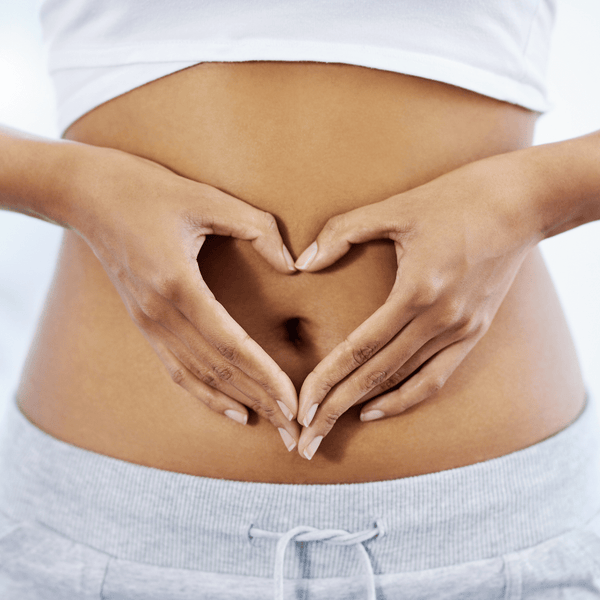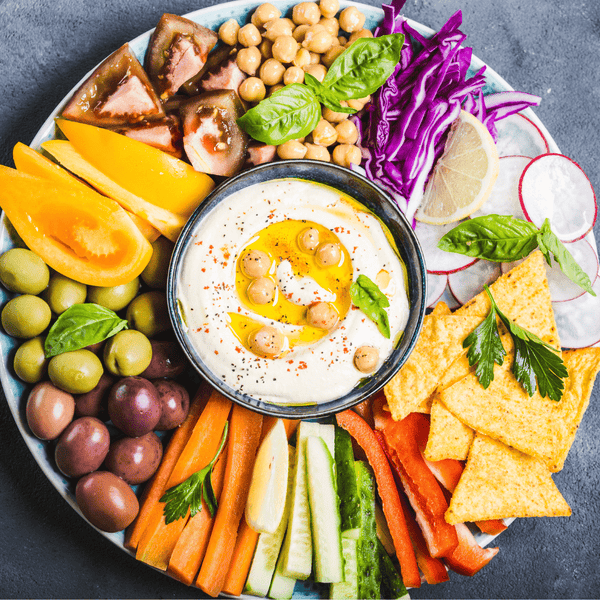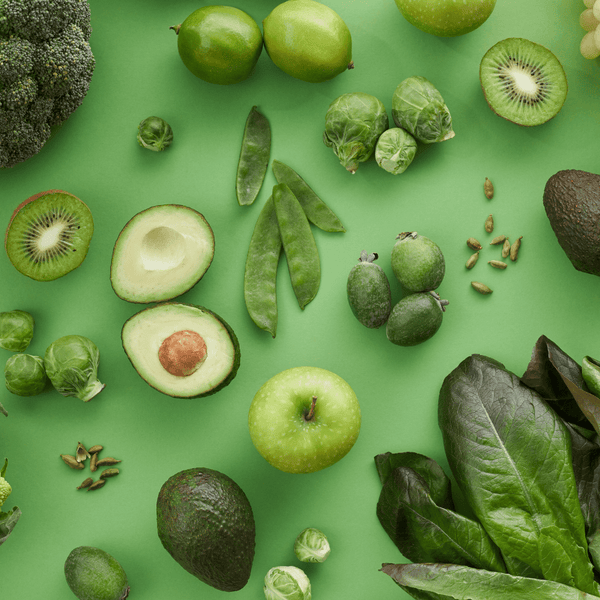We’ve all felt and seen the impact of the food we eat on our moods.
You eat something oily, heavy and unhealthy, you feel sluggish, tired, and lazy.
Conversely, have a bite of something healthy and it makes you feel energized, rejuvenated, and ready to take the world on.
We often talk about how food affects our bodies, but one aspect that’s often ignored is the effect these foods have on our mind, and how we end up feeling the weight of what we eat not just on our waists, but also our heads.
This is usually called the “gut-brain” connection.
The gut and brain may seem like separate and independent parts of the body, but they’re much closer and hardwired to each other than you might think.
Let’s talk about it in detail in this piece.
What Is the Gut-Brain Connection?
Simply put, it’s the ongoing conversation between your digestive system and your brain.
Scientists often call your gut the “second brain” because it’s packed with millions of nerve cells that communicate directly with your main brain.
Your gut sends signals up to your brain about how you’re feeling physically (like hunger or discomfort), and your brain sends signals back down that can affect digestion, mood, and even immune response.
This bidirectional communication happens through nerves (like the vagus nerve), hormones, and even the trillions of microbes living in your gut.
Understanding what is the brain gut connection helps explain why what you eat, how you feel, and even how much you stress can all influence each other.
It’s a fascinating link that shows just how connected our bodies really are-mind and belly, always in sync!
How Does the Gut-Brain Connection Work?
The gut brain connection is a fascinating, two-way communication system that links your digestive tract and your brain.
One of the main physical pathways is the vagus nerve-a kind of superhighway that runs from your gut all the way to your brain stem.
This nerve sends signals in both directions, letting your brain know what’s happening in your gut and vice versa.
In fact, about 80–90% of the vagus nerve fibers carry messages from the gut up to the brain, while the rest send instructions from the brain back down to the gut.
But the brain gut connection isn’t just about nerves. It’s also about chemistry.
Your gut and brain communicate through neurotransmitters-chemical messengers like serotonin and GABA.
Surprisingly, your gut produces a huge amount of these chemicals; for example, the majority of your body’s serotonin, which affects mood, appetite, and sleep, is actually made in your gut.
Gut microbes also help produce neurotransmitters, so a healthy gut microbiome can influence how you feel mentally and emotionally.
Hormones play a role too. The gut releases hormones that can affect your appetite, stress response, and even how your immune system functions.
In short, the gut brain connection is a busy, bidirectional network involving nerves, chemicals, hormones, and microbes-all working together to keep both your belly and your brain in sync.
Gut-Brain Connection and Mental Health: Mood, Anxiety & More
Many of us have experienced that “gut feeling” when we’re nervous or excited, but science shows this is more than just a saying.
The brain-gut connection anxiety link is real: stress and anxiety can trigger stomach issues, and gut problems can affect our mood and mental well-being.
A big reason for this is neurotransmitters-those chemical messengers that help our brain and gut “talk.”
Serotonin, often called the “happy chemical,” is well-known for its role in mood regulation. What’s surprising is that about 95% of the body’s serotonin is produced in the gut, not the brain.
This means gut health can have a direct impact on how much serotonin is available, potentially influencing mood, anxiety, and even conditions like depression.
Another key player is GABA (gamma-aminobutyric acid), which helps calm the nervous system and reduce feelings of anxiety.
Certain gut bacteria can actually produce GABA, showing just how closely our gut microbes and mental state are linked.
Researchers are finding that people with a more diverse, balanced gut microbiome tend to have better mood and cognitive function, and a lower risk of anxiety and depression.
So, keeping your gut healthy isn’t just good for digestion-it’s an imperative part of supporting your mental health, too.
Signs of an Unhealthy Gut-Brain Connection
When the gut-brain connection is out of balance, it can show up in more ways than just an upset stomach.
Common signs include frequent digestive issues like bloating, constipation, or diarrhea that don’t seem to have a clear cause.
But it’s not just your gut that feels off-you might notice mood swings, increased anxiety, or even feelings of depression.
Some people also experience brain fog, making it tough to concentrate or remember things.
If you’re dealing with a mix of tummy troubles and changes in mood or mental clarity, it could be your body’s way of signaling that your gut-brain connection needs some extra care.
How to Improve and Restore the Gut-Brain Connection
Wondering how to improve gut brain connection and restore balance?
It starts with nourishing your gut with the right foods and supporting a healthy lifestyle. Including fiber-rich foods like fruits, vegetables, whole grains, nuts, and seeds feeds the beneficial bacteria in your gut, helping them thrive.
Prebiotics, which are types of fiber, act as food for these good microbes, while probiotics-found in fermented foods like yogurt, kefir, sauerkraut, kimchi, and miso-introduce live beneficial bacteria that can boost gut diversity and support brain health.
Omega-3 fatty acids, found in oily fish, flaxseeds, and walnuts, are another key player.
These healthy fats help reduce inflammation and promote the growth of good gut bacteria, which may positively affect mood and cognitive function.
Polyphenol-rich foods like green tea, berries, coffee, and olive oil also support a healthy gut microbiome.
Beyond diet, lifestyle matters. Managing stress through mindfulness, yoga, or deep breathing exercises can calm your nervous system and protect your gut bacteria from stress-related damage.
Regular exercise improves digestion and circulation, while quality sleep helps regulate gut and brain function.
By combining these habits, you can effectively improve gut brain connection and restore brain gut connection, supporting both your digestive health and mental well-being.
Remember, small, consistent changes make a big difference over time.
Incorporating gut-friendly snacks like 100 Cal Snacks, made with natural, wholesome ingredients, can be a convenient way to support your gut-brain axis every day.
Easy Ways to Support Your Gut-Brain Axis Daily
Supporting your gut-brain axis doesn’t have to be complicated-small daily habits can make a big difference.
Start by adding more fiber and fermented foods to your meals, like tossing berries into yogurt or adding sauerkraut to a salad.
Drink plenty of water to keep things moving smoothly in your digestive system. Take a few minutes each day to de-stress with deep breathing, a walk outside, or a quick stretch.
Prioritize getting enough sleep and try to stick to a regular bedtime. Move your body regularly, even if it’s just a short walk after meals.
And don’t forget to snack smart-reach for gut-friendly options like 100 Cal Snacks to fuel your day and support your gut-brain connection on the go.
Keep Your Gut and Brain Happy-One Snack at a Time with 100 Cal Snacks
Taking care of your gut-brain connection is about more than just feeling good in your stomach, it’s about supporting your mood, focus, and overall well-being every day.
By making simple changes to your diet and lifestyle, you can help keep this powerful partnership running smoothly. Remember, a balanced gut can lead to a brighter mind, less anxiety, and more energy to enjoy life.
If you’re looking for easy, gut-friendly snack options, 100 Cal Snacks has you covered.
Our snacks are made with natural ingredients, packed with protein,are gluten-free, and portion-controlled to help you stay on track. All our products are also adaptogen-infused, adding an extra layer of support for your body’s stress response.
Whether you need a quick bite between meetings or a healthy treat for the kids, 100 Cal Snacks makes it simple to nourish your gut and keep your brain in top shape.
Check out our Chocolate Protein Bars, BBQ Protein Puffs, and Peanut Butter Protein Bars today to support your gut-brain axis the tasty way!







